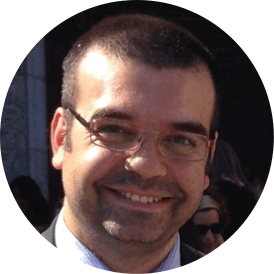The thing that makes us human
- Michael Panao
- 17 de ago. de 2016
- 3 min de leitura
What distinguishes us from the natural world?
Is it because we're rational? More powerful? Because we're at the top of the food chain? What is it?
Several authors argue, and I agree, it is because we are creative.
Creativity distinguishes us from nature. Why?

Yesterday I went to see a friend because his uncle invented something and he wanted an advice from an engineering point of view. His uncle is around 70 years old and his education is basic. Never studied physics or attended the university.
One day he had a dream.
In that dream he idealized a way to heat water without spending so much energy and money. I saw is vision working and I do not know yet if it is a million dollar idea or not, but when someone with no engineering knowledge idealizes and builds something like that is amazing!
That's what an inventor is all about. Dream and turn them into something real.
Do you still dream? Can you make those dreams real? Why was he able to invent?
Because we are creative beings. But the question still stands. Why?
Because we are persons and personhood is creativity. The line of reasoning for this is beautifully put forth by John Zizioulas. In his "Being as Communion" he writes

"The person is otherness in communion and communion in otherness. The person is an identity that emerges through relationship; it is an 'I' that can exist only as long as it relates to a 'thou' which affirms it's existence and it's otherness. If we isolate the 'I' from the 'thou' we lose not only it's otherness but also it's very being; it simply cannot be without the other.
Personhood is freedom. In its anthropological significance, personhood is inconceivable without freedom; it is the freedom of being other. I hesitate to say 'different' instead of 'other', because 'different' can be understood in the sense of qualities (clever, beautiful, etc.), which is not what the person is about. Person implies not simply the freedom to have qualities, but mainly the freedom simply to be yourself.
And yet because, as we have already observed, one person is no person, this freedom is not freedom from the other but freedom *for* the other. Freedom thus becomes identical with love. We can love only if we are persons, that is, if we allow the other to be truly other, and yet to be in communion with us. If we love the other not only in spite of his of her being different from us but because he or she is different from us, or rather other than ourselves, we live in freedom as love and in love as freedom .
[In this way] personhood is creativity. Freedom is not from but for someone or something other than ourselves. This makes the person ecstatic, that is, going outside and beyond the boundaries of the 'self'. But this ecstasis is not to be understood as a movement towards the unknown and the infinite [an arbitrary, abstract othering for the sake of itself]; it is a movement of affirmation of the other.
This drive of personhood towards the affirmation of the other is so strong that it is not limited to the 'other' that already exists, but wants to affirm an 'other' which is [the product of] the totally free grace of the person. The person [out of totally free grace] wants to create its own 'other'. This is what happens in art; and it is only the person that can be an artist in the true sense, that is, a creator that brings about a totally other identity as an act of freedom and communion."
There may be several limitations to this invention, but that's not the best part of this experience. It is the reality that age is not a limitation to be who we are. Creative beings.
So what are you waiting for?
No time to lose. Seize it.
Be creative.







Comentários